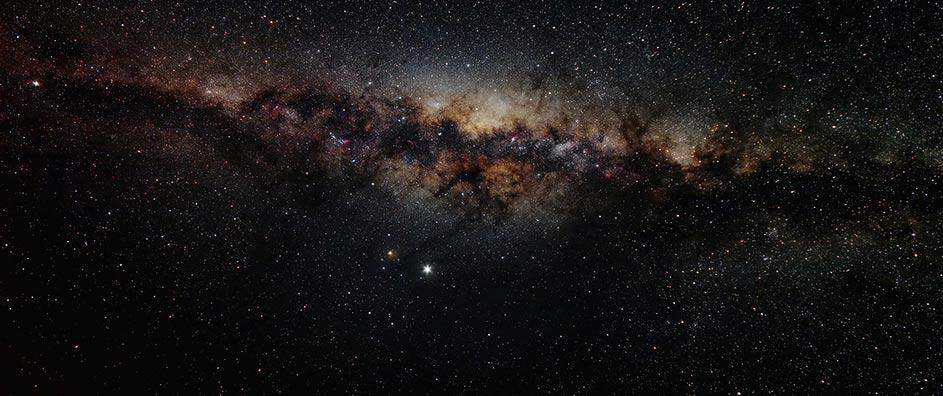In contemplating the vastness of the cosmos, a compelling notion emerges: Each planet, with its distinct environment and conditions, potentially harbors its own unique forms of life. This idea resonates with Bahá’í teachings, which espouse a profound recognition of the diversity and interconnectedness inherent in the universe. The assertion that “Every Planet Has Its Own Creatures” invites exploration into the philosophical implications of a universe teeming with life and the myriad forms it may take across different celestial bodies.
To embark on this exploration, one must first acknowledge the remarkable curiosity that humans have regarding extraterrestrial life. From antiquity to the modern era, the wonder surrounding the existence of life beyond Earth has been a recurring theme in cultural narratives, scientific inquiry, and spiritual contemplations. This fascination is not merely a symptom of idle wonder but rather hints at deeper philosophical inquiries regarding humanity’s place in the universe and the nature of creation itself.
At the heart of Bahá’í teachings lies the belief in a singular, universal God who has orchestrated the myriad manifestations of life for a purpose that transcends human comprehension. The writings suggest that the diversity of creation, including the potential for life on other planets, serves a dual purpose: it highlights the unity that exists within diversity and reflects the boundless creativity of the Divine. Understanding creatures from distant worlds beckons a more profound inquiry into our own existence and relations, both terrestrial and beyond.
The assertion that every planet may host its own creatures encapsulates a reflective consideration of life as a universal phenomenon. While Earth is often viewed as singularly unique due to its rich biodiversity, the Bahá’í perspective encourages an expansive view—one that entertains the concept that life may thrive in forms that are yet to be discovered, and perhaps, in forms that differ drastically from terrestrial life as we know it. This challenges the anthropocentric views of existence that often lead to a narrow understanding of life.
The idea of life on other planets resonates with the Bahá’í principle of the oneness of humanity. Just as diverse cultures and societies exist within human civilization, so too might diverse forms of life flourish under varying celestial conditions. This parallelism urges followers to appreciate not only the shared attributes of humanity but also the broader canvas upon which the Divine has painted myriad life forms, each with its role and function. Such perspectives foster a spirit of unity and interconnectedness, emphasizing the importance of compassion and tolerance in interactions with fellow beings, whether they are terrestrial or otherwise.
From a scientific standpoint, the search for extraterrestrial life has gained momentum in recent decades. With advances in technology and exploration, astrobiology has emerged as a prominent field dedicated to understanding life’s potential in the cosmos. Considerations of extremophiles—organisms that thrive in environments previously thought inhospitable—demonstrate that life can flourish under conditions vastly different from those found on Earth. This underscores the Bahá’í view that if life could emerge in such diverse environments here on Earth, it stands to reason that it may exist elsewhere, prompting inquiries into the philosophical ramifications of such discoveries.
The prospect of encountering life beyond our planet brings to the fore profound questions about existence, purpose, and divine creation. If other civilizations do exist, what forms of ethics, spirituality, or governance might they possess? How might these potential encounters reshape human understanding of who we are? Such reflections guide Bahá’ís to a deeper appreciation for the need to cultivate unity and harmony in our interactions with others, recognizing that the universe may teem with life, deserving of respect and reverence.
Moreover, the notion that every planet has its own creatures can inspire contemplation about the ecological balance on Earth. The Bahá’í teachings emphasize stewardship of the planet—a duty that is increasingly significant in light of impending environmental crises. Recognizing that all forms of life are interconnected fosters a deeper commitment to preserving the unique ecosystems present on our own planet. This dual recognition of our earthly responsibilities alongside the speculative insights into extraterrestrial life compels individuals to engage in sustainable practices, not merely for the benefit of humanity but for the collective good of all life forms.
In conclusion, the Bahá’í perspective on the affirmation that “Every Planet Has Its Own Creatures” invites a multidimensional exploration of existence, urging individuals to reflect on their own lives while opening their hearts to a broader understanding of the universe. It serves as both a spiritual and philosophical stimulation, encouraging ongoing inquiry into the nature of creation and the interconnectedness of all beings, earthly or otherwise. This perspective also advocates for a compassionate and respectful approach to life, enabling the development of a more harmonious global society. As we traverse the uncharted landscapes of our universe, may we do so with an appreciation for the boundless potential of life and the profound mysteries that await discovery. In essence, every planet could indeed be a cradle for creatures—and every inhabitant of Earth a steward of the interconnected cosmos.
